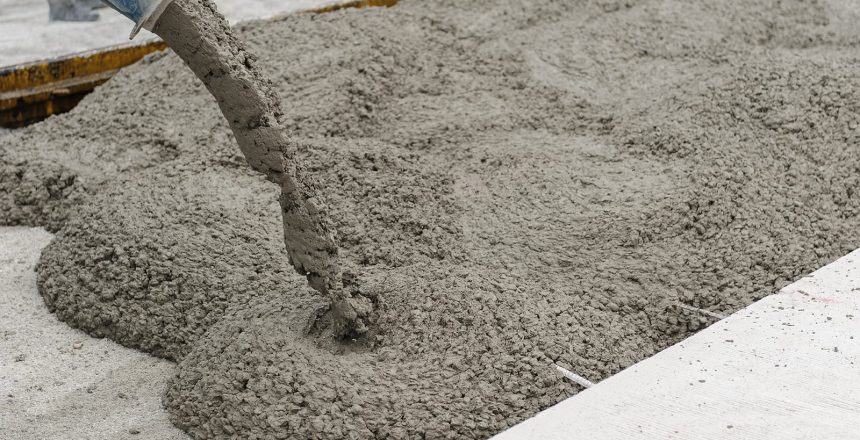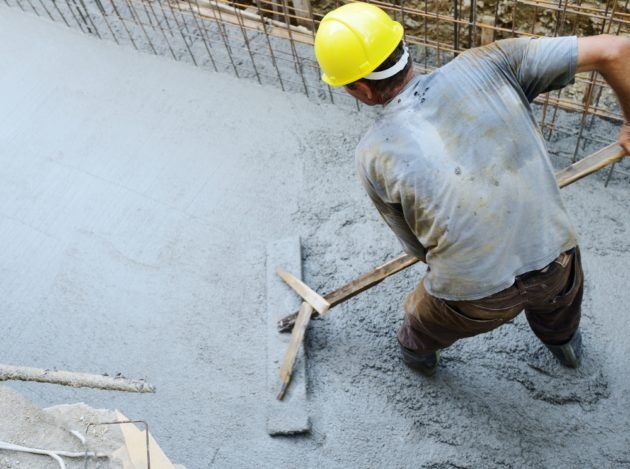Revealing the Eco-Friendly Advantages of Making Use Of Recycled Concrete in Sustainable Building And Construction Practices
In the realm of sustainable building and construction practices, the usage of recycled concrete stands as a pivotal yet typically underestimated source. Beyond its standard applications, recycled concrete deals a myriad of green benefits that extend far beyond the boundaries of conventional construction materials.
Ecological Advantages
By incorporating recycled concrete right into building and construction techniques, there is a substantial decrease in the demand for new raw products, leading to conservation of natural sources. In addition, the usage of recycled concrete decreases the quantity of waste being sent to landfills, consequently lowering ecological pollution and alleviating the pressure on land fill capabilities (Concrete).

In comparison, recycled concrete has a lower carbon impact as it reduces the demand for new concrete manufacturing. On the whole, the ecological advantages of utilizing recycled concrete are considerable and play a vital role in advertising environment-friendly construction approaches.
Cost-Efficiency
When assessing the usage of recycled concrete in building and construction projects,Achieving cost-efficiency is a vital consideration. Among the essential benefits of using recycled concrete is its cost-effectiveness compared to typical concrete. The manufacturing of recycled concrete includes much less power and sources as it uses existing products, decreasing the total task expenses dramatically. Furthermore, the availability of recycled concrete locally can even more reduce transportation expenses, making it a more affordable option for building and construction projects.
In addition, making use of recycled concrete can lead to financial savings in land fill expenses by diverting concrete waste from disposal websites. This not just reduces the environmental impact but likewise removes the costs related to waste removal. The sturdiness and efficiency of recycled concrete are equivalent to traditional concrete, ensuring that price financial savings do not compromise the top quality of the building.
Longevity and Toughness
Recycled concrete offers equivalent, if not exceptional, longevity and toughness residential properties to conventional concrete - Concrete. With developments in handling methods and high quality control, recycled concrete can meet or surpass the performance criteria of conventional concrete.

Waste Decrease
When it comes to making use of recycled concrete, waste reduction is a crucial advantage that adds significantly to environmental preservation. By incorporating recycled concrete right into building tasks, this waste is repurposed and drawn away from landfills, lowering the general ecological influence of construction activities.
Furthermore, the use of recycled concrete can lead to cost financial savings for building jobs, as it is frequently more inexpensive than sourcing and delivering new materials - Concrete. In conclusion, waste decrease with the application of recycled concrete is a crucial component of sustainable construction techniques that profits both the environment and the building and construction sector as a whole.
Energy Conservation
When it comes to making use of recycled concrete in construction, significant energy savings are accomplished contrasted to conventional concrete production. The process of creating recycled my explanation concrete includes recycling and crushing existing concrete materials, which consumes much less power than mining, handling, and moving raw materials for brand-new concrete production.
Conclusion
To conclude, the usage of recycled concrete in sustainable construction practices provides numerous environmental advantages, cost-efficiency, toughness, toughness, waste reduction, and energy preservation. By integrating recycled concrete into building jobs, we can contribute to a much more eco-friendly and sustainable future. It is necessary for the construction industry to prioritize the usage of recycled materials to assist lower the ecological effect of construction tasks.
One of the essential advantages of making use of recycled concrete is its cost-effectiveness compared to typical concrete.In addition, the use of recycled concrete can lead to financial savings in garbage dump prices by diverting concrete waste from disposal websites. The durability and efficiency of recycled concrete are equivalent to standard concrete, ensuring that cost financial savings do not endanger the quality of the building and construction.
